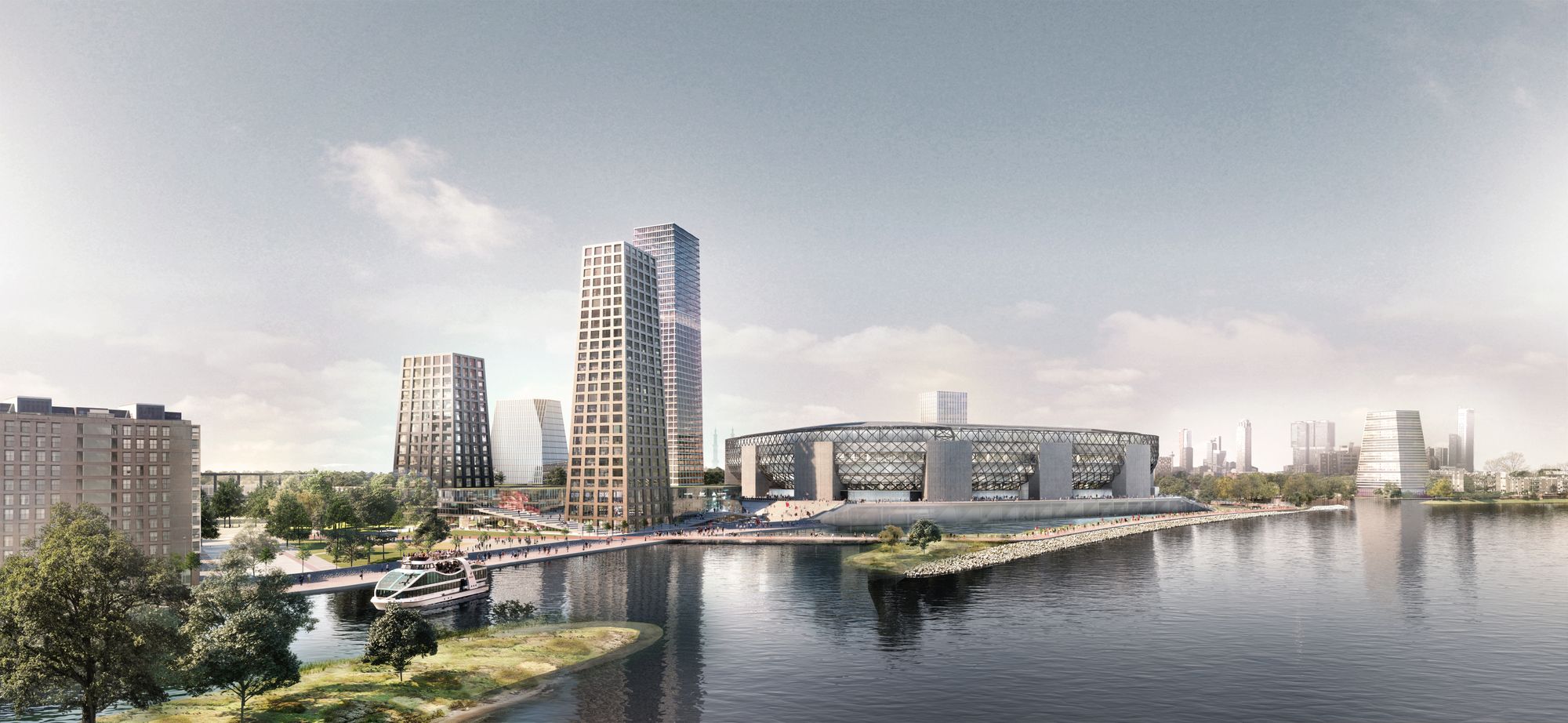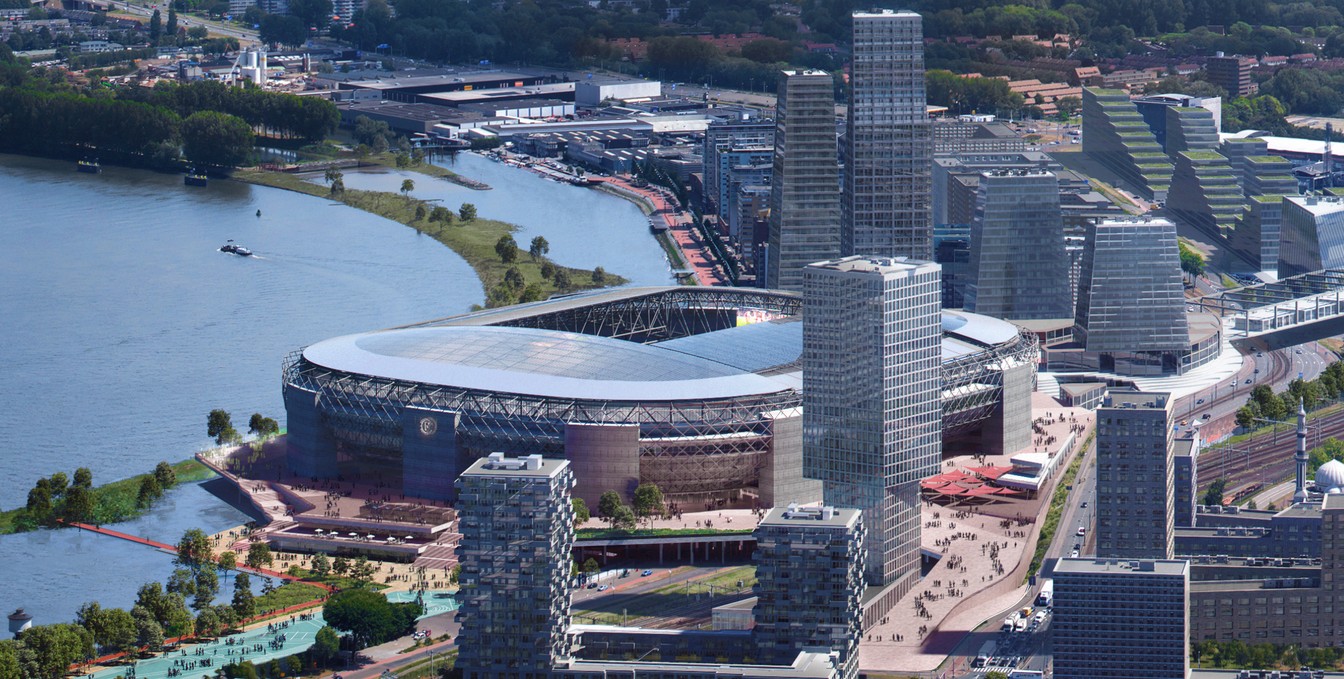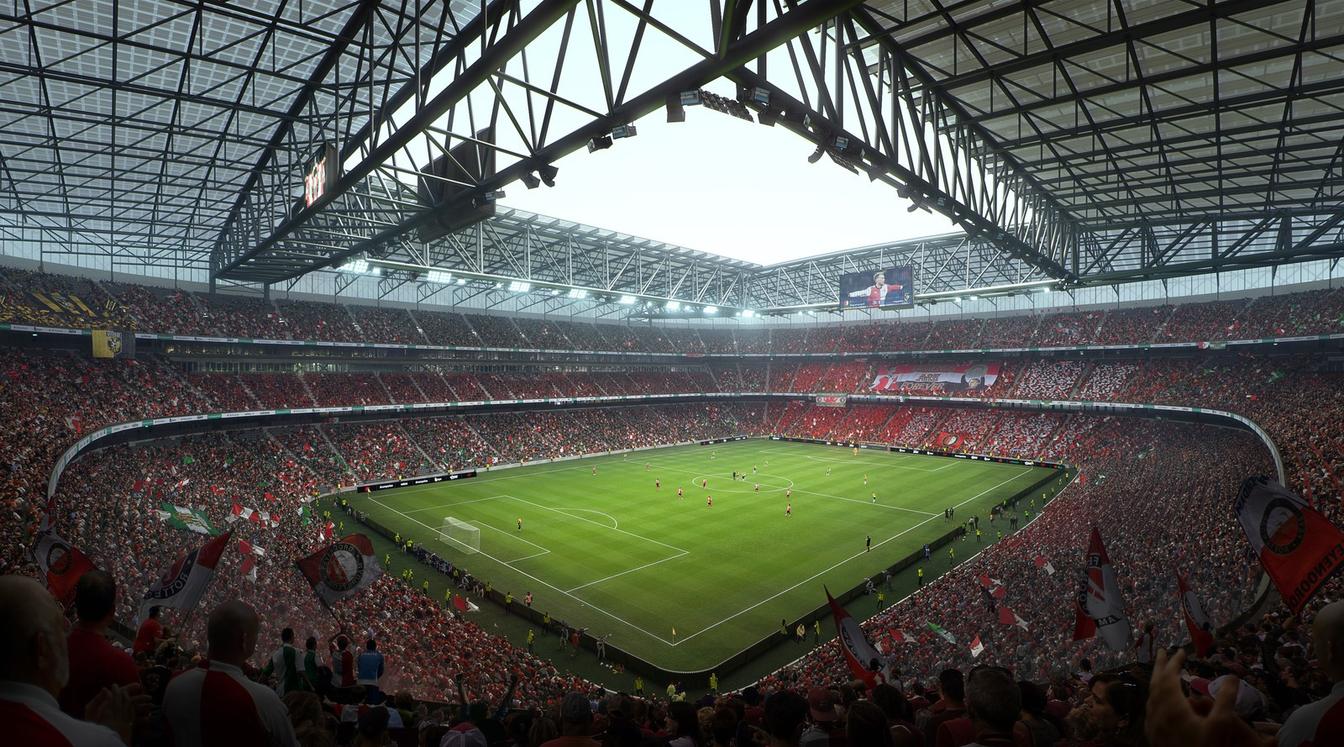Rotterdam: Further steps towards new Feyenoord stadium
source: StadiumDB.com [KT]; author: Karol
 The planned new stadium for Feyenoord has come closer to fruition. Together with the zoning plan adopted by the city council of Rotterdam, the business case has been also accepted.
The planned new stadium for Feyenoord has come closer to fruition. Together with the zoning plan adopted by the city council of Rotterdam, the business case has been also accepted.
Advertisement
Ambitious development plan
Master plan revealed by the city of Rotterdam is about developing the south area and making the banks of the Nieuwe Maas more accessible and perceptible. The investment plan is being described as one of the most important ambitions for creating new natural values in the city.
It aims to deliver a unique experience for the local people, holiday makers in the Netherlands and sports fans. The latter group, at least those willing to give up De Kuip, should be more than delighted because of the new stadium which will occupy a prominent place as an icon and multifunctional building.
 © OMA
© OMA
Together with the people-friendly surroundings, the new stadium is the driving force which should give a huge boost to south Rotterdam and the rest of the city. The zoning plan revealed in January determines which developments may take place in the area and what and where may be built. Now that the plan has been adopted, construction of 3,700 homes can start. The project cost of the entire investment is estimated at €1.5 billion.
Approval of the council was also an important moment for Rob de Jong, director of the Area Development Foundation on the Maas. “Really great, we can now continue to work on a dynamic area in the south that will soon challenge people to live an active and social life. Every day we come one step closer to realizing this project.”
New venue as the heart of the riverside
Compared to arenas located on the outskirts of cities, the new stadium of the Dutch Eredivisie football club will be surrounded by life from the city. The venue forms an extension of the urban fabric, which is accessible to everyone all year round as a public space, both during events and beyond.
 © OMA
© OMA
The new stadium, planned to be built slightly north of the historical De Kuip, will be perfectly geometric in shape. With the raised bowl, it will provide openness and transparency and emphasizes the function of the concourse as a public space outside the boundaries of the stadium itself. Despite the turbulent COVID-19 reality, Feyenoord has confirmed the stadium design and now is looking into next phases and approvals. Once the final green light is given, work on site should start in the spring of 2022.
Construction cost of the new 63,000 seater are estimated at €444 million. To date, €20 million has been invested in the plans for the new facility. It also remains unclear whether the construction is feasible within the budgeted cost. The rise in steel prices is one of the factors that makes this very difficult.
Business case accepted
The municipality has been waiting for this formal approval from the football club in order to be able to take the next steps in Feyenoord City itself. The Rotterdam football club is now ready to definitively say 'yes' on the business case. It shows that they will earn more than €7.5 million ($9.0 m) in the first season in the new stadium (2025/2026) and then see additional €25.4 m ($30.5 m) annually.
The New Stadium Investment Memorandum is intended to inform the municipality of Rotterdam, investors, and other interested parties about the venue project and the associated business case. In addition, the financial consultancy Deloitte is reviewing the document.
 © OMA
© OMA
Experts are checking whether all assumptions and calculations in the business case are correct and whether everything falls within the position paper discussed with the municipality. Of the 98 conditions set, 54 were ranked by Deloitte as already met, further 36 are nearly met. Crucially, all conditions required for the city’s financial contribution of €40 million (essential for the project to move forward) are met.
For now, there are still a few crucial factors to consider if Feyenoord definitely will go to the new stadium or not. This concerns financing structure of the stadium itself and an agreement on the construction costs. It’s expected that the so-called financial close can take place in the fourth quarter of 2021 so that construction work can start in 2022. What is more, pandemic influences and political talks are within the main factors which make the plan real or place it into a drawer.
Also, the voice of all opponents of Feyenoord City has to be heard. The Council of State is expected to hear cases against the development in October or November of this year. These include supporter groups standing against the relocation. If the building plans continue, the Nieuwe Kuip can be opened in 2025.
Author: Karol Tatar
Advertisement
 StadiumDB
StadiumDB